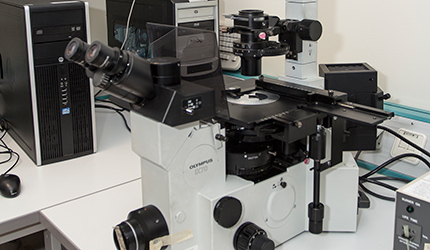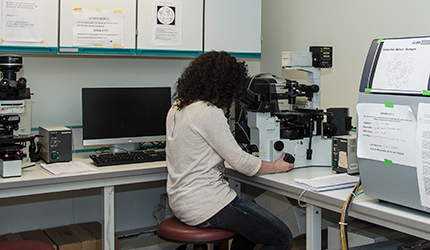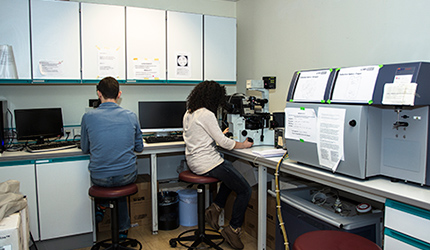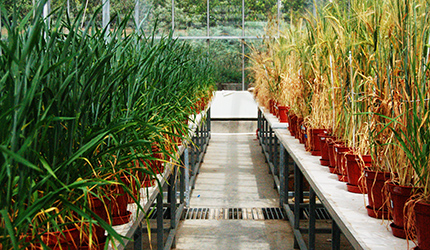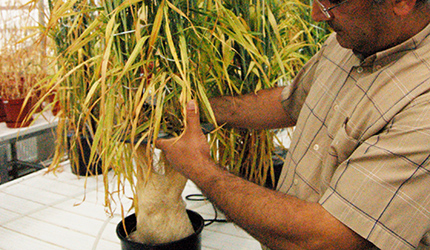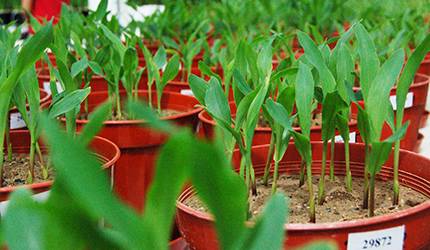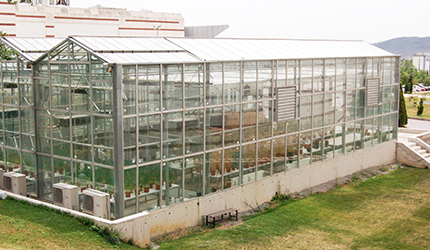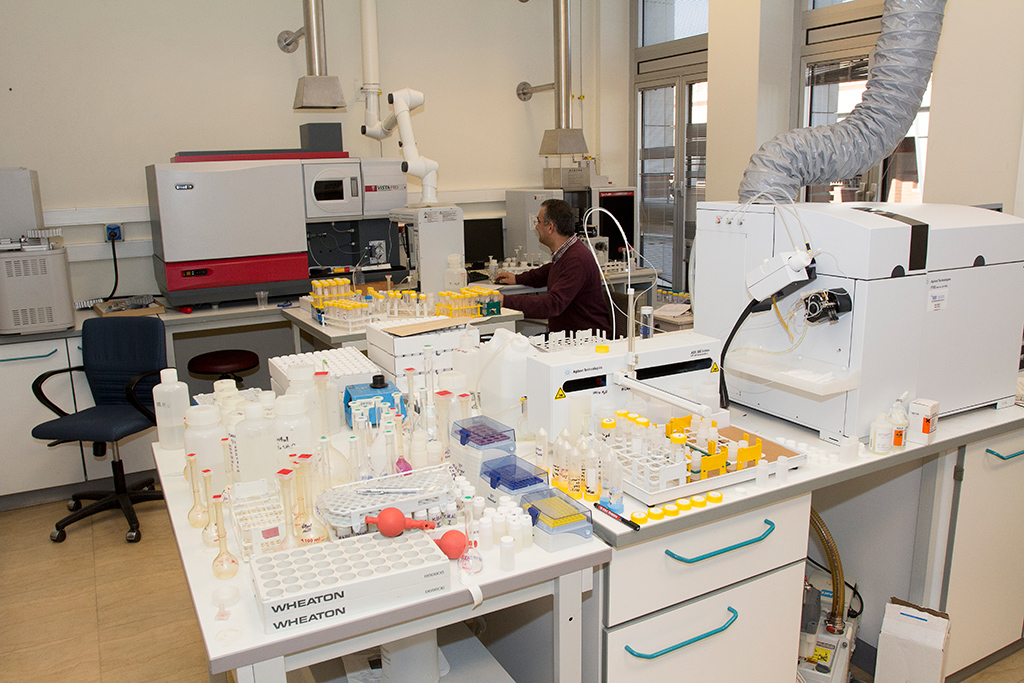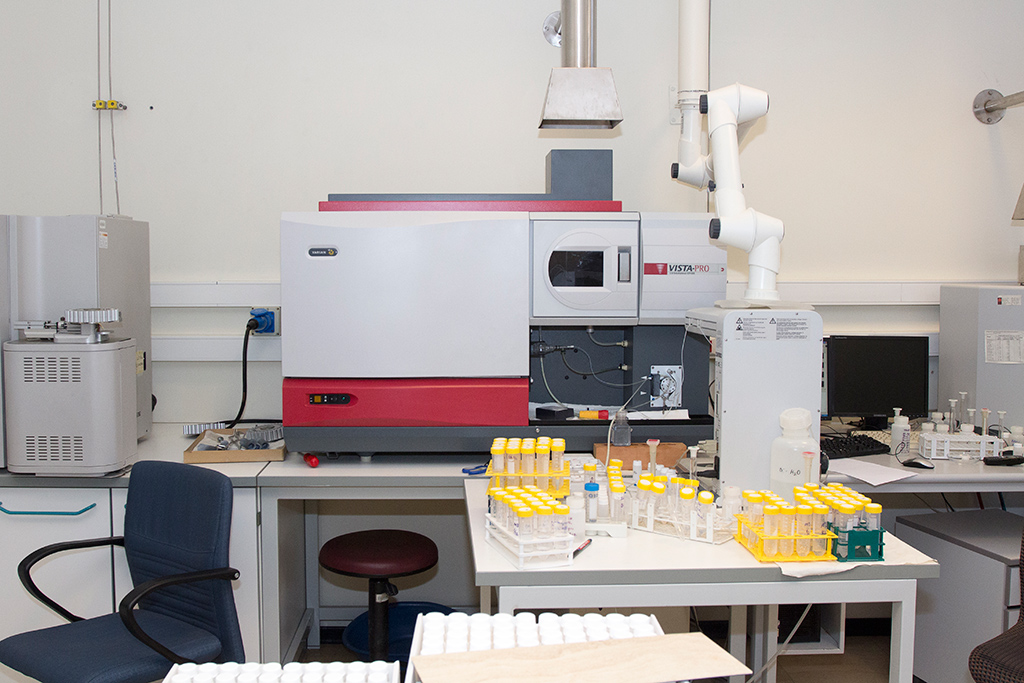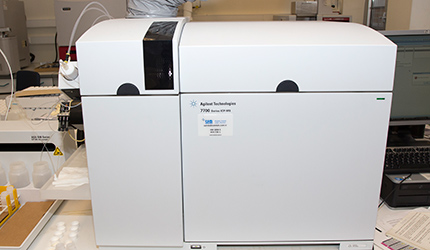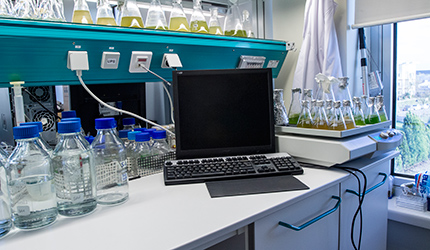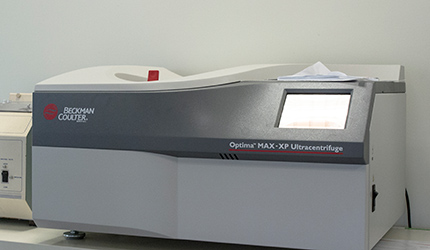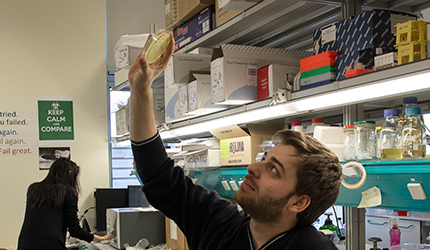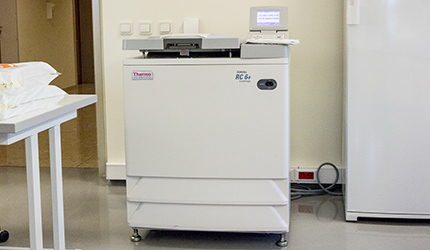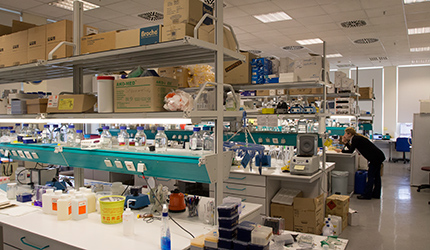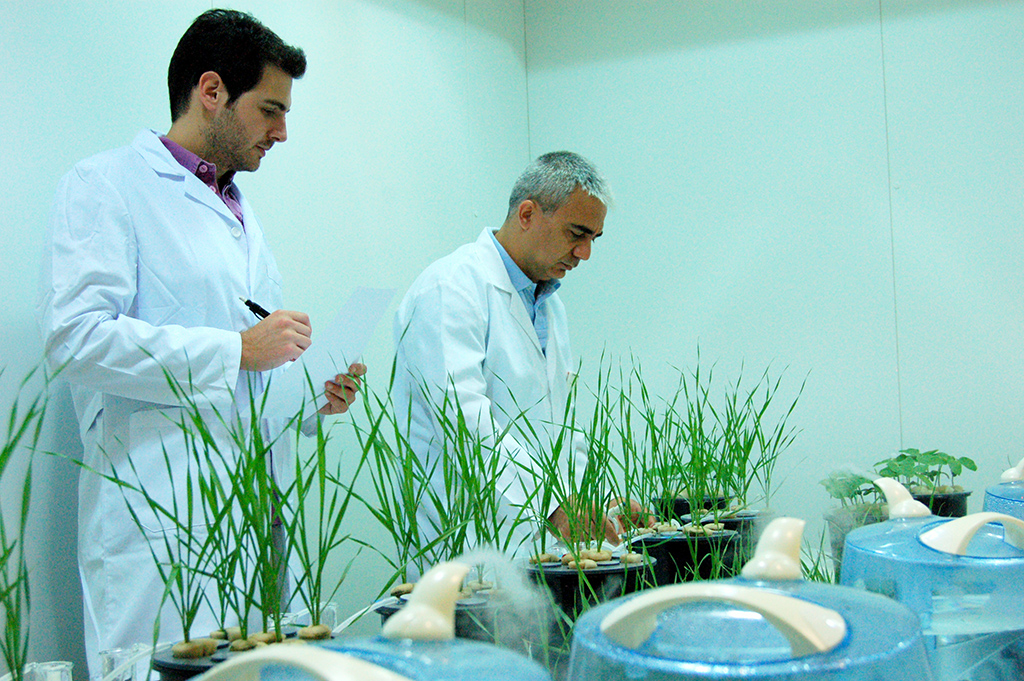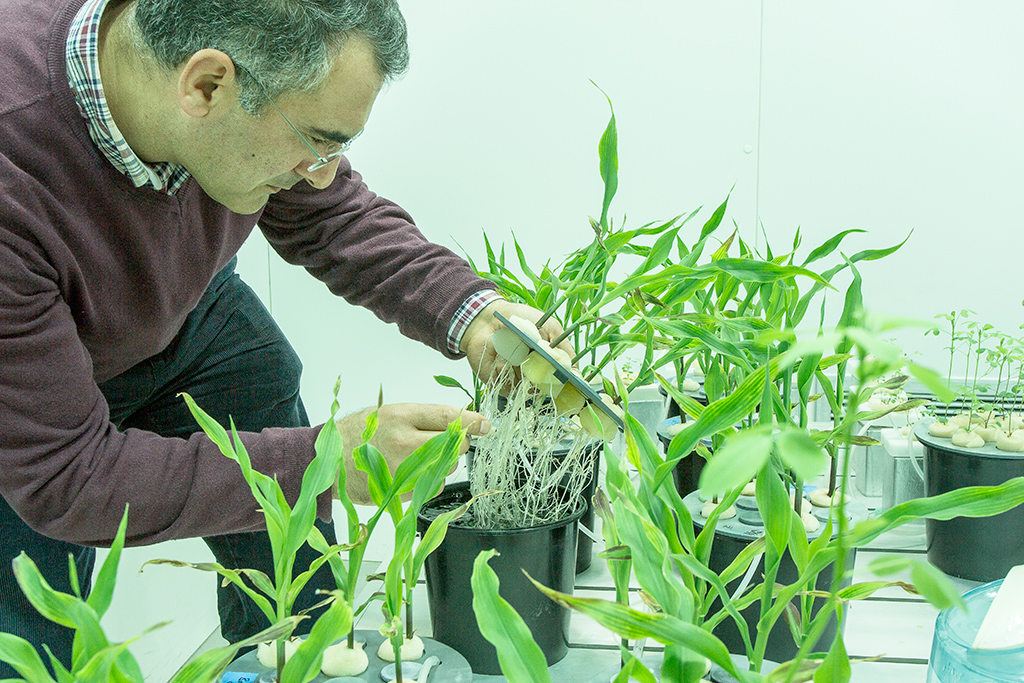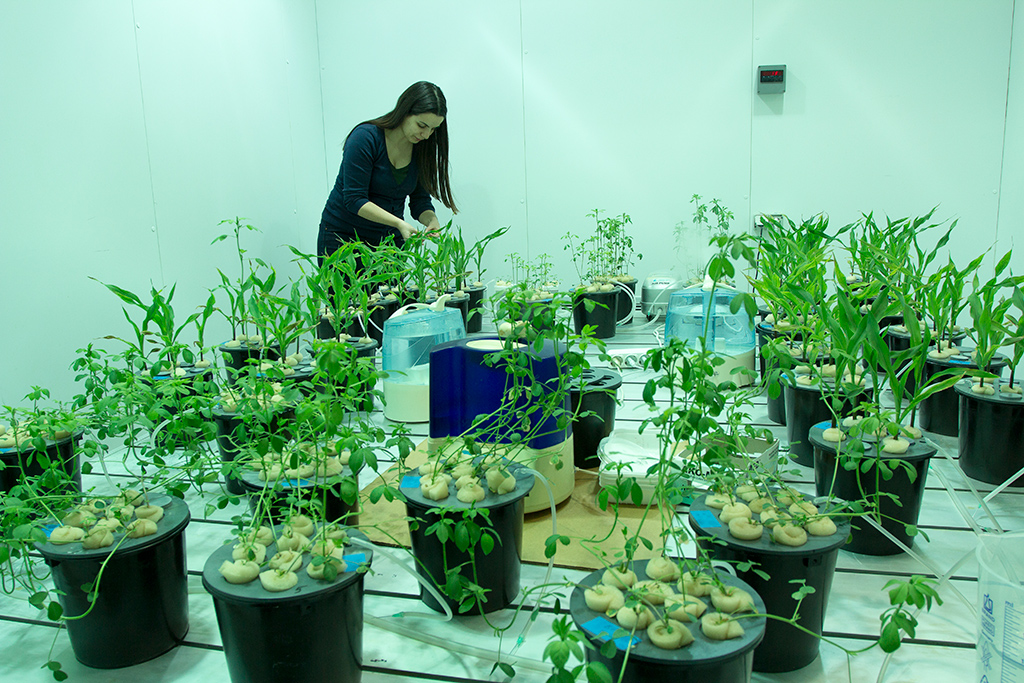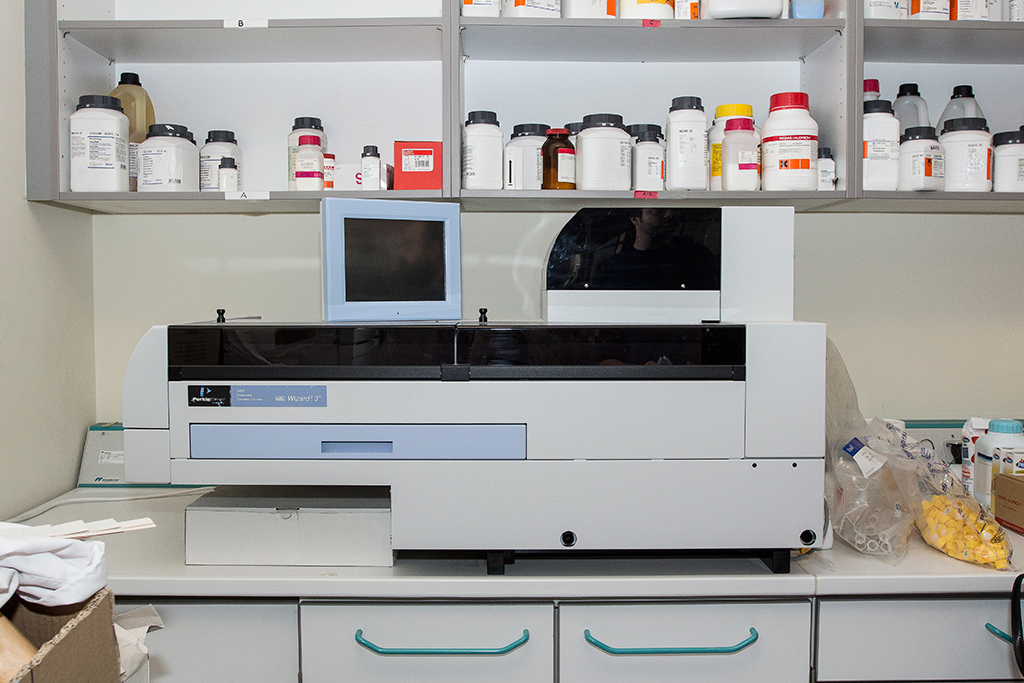Bioimaging Lab
The Bioimaging Lab has three fluorescent microscopes, an Olympus IX70 inverted microscope, an Olympus BX60 upright microscope and a Zeiss Axiovert A1 Invert microscope with a Colibri2 LED lightsource. We can make measurements of different fluorophores using the following filters: UMWIBA (blue excitation) for EGFP, EYFP, FITC; UMNU (UV excitation) for DAPI, Hoechst 44258; U-MWIG3 (green excitation) for Cy3, 7AAD, PI, TRITC; Omega Qmax-Red (green excitation) for visualizing J-Red from Evrogen; UMNIB3 (blue excitation) for EGFP, EYFP, FITC. To use the equipment in this room, researchers must register to the following group:
su-biomicroscope-users@sabanciuniv.edu
Experimental Greenhouse
The Experimental Greenhouse facility is located next to FENS building and it is active throughout the year. This 320 m2 venlo type greenhouse has computerized climatic control and lighting. The greenhouse is complemented with a service building that is consisted of a control room, a small-sized lab, soil storage and sample preparation rooms.
Bioengineering Lab
Within the Bioengineering laboratory at Sabancı University, we are dedicated to solving intricate biological challenges through the application of engineering methodologies and pioneering innovative technologies. Our primary focus centers on the in-depth study of the brain and various neurological diseases. At the heart of our research lies the intricate cerebrovascular structure within the brain, commonly known as the blood-brain barrier.
While the blood-brain barrier has evolved to protect brain tissue from pathogens and toxic substances, it paradoxically hinders drug delivery, making the treatment of brain diseases a formidable challenge. Adding to this complexity, the composition and protein profile of the blood-brain barrier differ among various diseases. To understand these variations and to develop effective treatments, we have adopted a multidisciplinary approach within our laboratory.
Our research team comprises molecular biologists and engineers, allowing us to faithfully replicate human physiology within a dynamic in vitro environment. We achieve this through the use of blood-brain barrier models, meticulously engineered using human cells and stem cell technologies, complemented by microfluidic systems. These innovative models are invaluable tools for examining the blood-brain barrier in both healthy and pathological conditions, facilitating comprehensive drug transport studies.
Operating under the Mustafaoglu Lab, we allocate our resources to develop these models for a spectrum of neurological conditions, including but not limited to Alzheimer's disease, epilepsy, brain cancer, and even rare afflictions such as fatal familial insomnia. Furthermore, our research extends to exploring the influence of gut microbiota on the integrity of the blood-brain barrier, especially in conditions like stroke.
Of utmost importance, these revolutionary disease models offer a significant opportunity for the development of advanced drug delivery systems tailored to address various brain-related maladies. Our research group is actively engaged in the exploration of nano-carrier systems designed for this crucial purpose. The incorporation of human stem cells within these systems not only provides an advantage in translating drug trials into clinical settings but also substantially reduces the reliance on animal models in the realm of drug development.
For more Information
Metal and Nutrient Analysis lab is equipped with ICP and AA spectrometers, C/N and amino acid analyzers. These instruments can be operated 7/24 with the attached auto-sampler units. The lab is intensively used to analyze plant and soil samples obtained from various national and international research projects and graduate studies dealing with a wide range of hot research topics such as enrichment of cereal grains with micronutrients. Samples of industrial and environmental origin are also being analyzed for determination of elemental composition.
Researches in Plant Biotechnology laboratory are primarily focused on testing and analysis of genetically modified organisms (GMO), genetic transformation of plants and in vitro propagation techniques. So far, in vitro propagation of bananas, fruit rootstocks and microtuber production in potatoes have been successfully commercialized. Biodiversity in plants using different DNA fingerprinting techniques and the utilization of algae for biodiesel production are the other research areas studied in this laboratory. Basic molecular biology equipments, analytical balances, microcentrifuges, light microscope, high-speed centrifuges, ultracentrifuge, incubators and shakers, PCR machines, spectrophotometers, Real Time PCR, horizontal and vertical electrophoresis systems, gel documentation system, tissue lyser , climatized chamber, plant tissue culture room and safety cabinets are available for the studies carried out in the Plant Biotechnology laboratory.
The Plant Nutrition and Physiology laboratory is well-established and equipped for applications in plant nutrition and physiology. The lab includes three plant growth chambers with high precision climatic control in which both soil and nutrient solution experiments can be performed. A section of the lab is reserved for physiological experiments where isotopic labels are used as tracers of plant nutrients. Along with many small equipment used in basic plant nutrition research, the lab has three microwave digestion systems, a fully automated Kjeldahl-N analyzer with carousel, a gamma counter and a spectrophotometer. The lab is intensively used in conducting growth chamber experiments, sample preparation for elemental analysis and various applications in plant nutrition and physiology. Currently four post-docs, two PhD and three MSc students and six technical assistants occupy the lab to accomplish undergraduate lab courses, thesis studies and funded research projects.
Protein Chemistry and Structural Biology laboratory is dedicated for protein research. The lab is equipped with AKTA and FPLC AKTA fraction collectors, Nanodrop spectrophotometer, Plate reader spectrofluorimeter and Circular Dichroism Spectropolarimeter. The lab is intensively used to purify and characterize different protein/peptide samples from SU laboratories or from other research groups. The lab is dedicated for recombinant DNA cloning, heterologous protein expression, protein purification and biophysical characterization. The lab is equipped with laminar flow cabinet, thermocycler for PCR, benchtop centrifuges, pH meter and other small equipment used in basic protein research. Furthermore there are shakers and incubators, DNA and protein electrophoresis equipment, high speed and ultra high speed centrifuges, spectrophotometers, DNA sequencer and scintillation counter for common use. Current research projects focus on metal binding and heterotrimeric GTP-binding proteins of plant origin. Different biochemical and biophysical characterization techniques are investigated including Small Angle X-ray Scattering, CD, UV spectrophotometric analysis, radioactive and fluorometeric enzyme assays along with other standart assays.
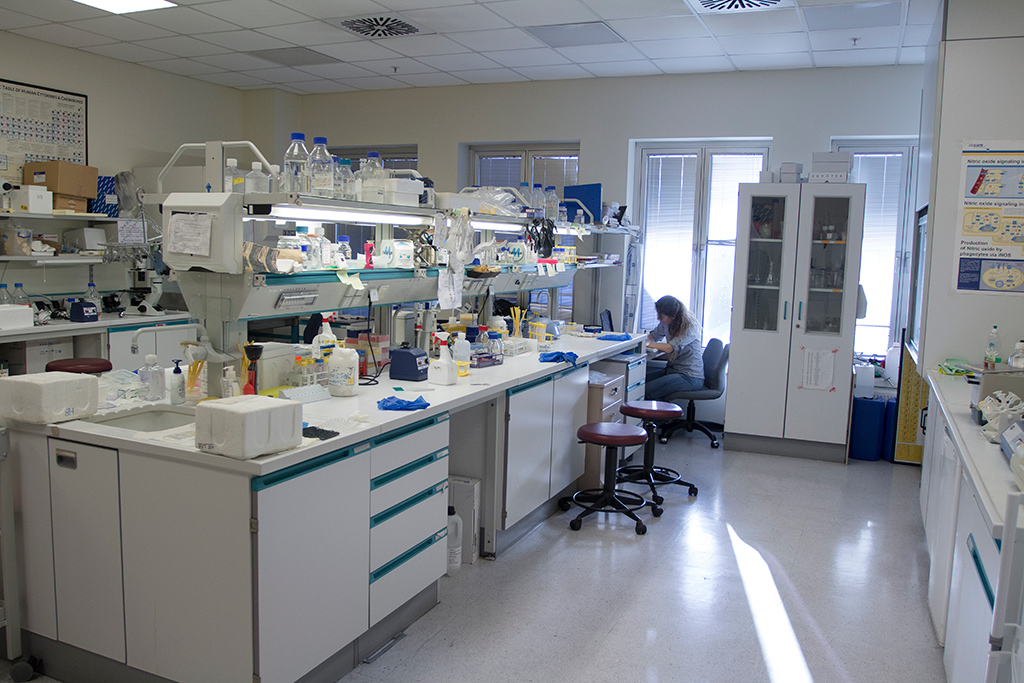
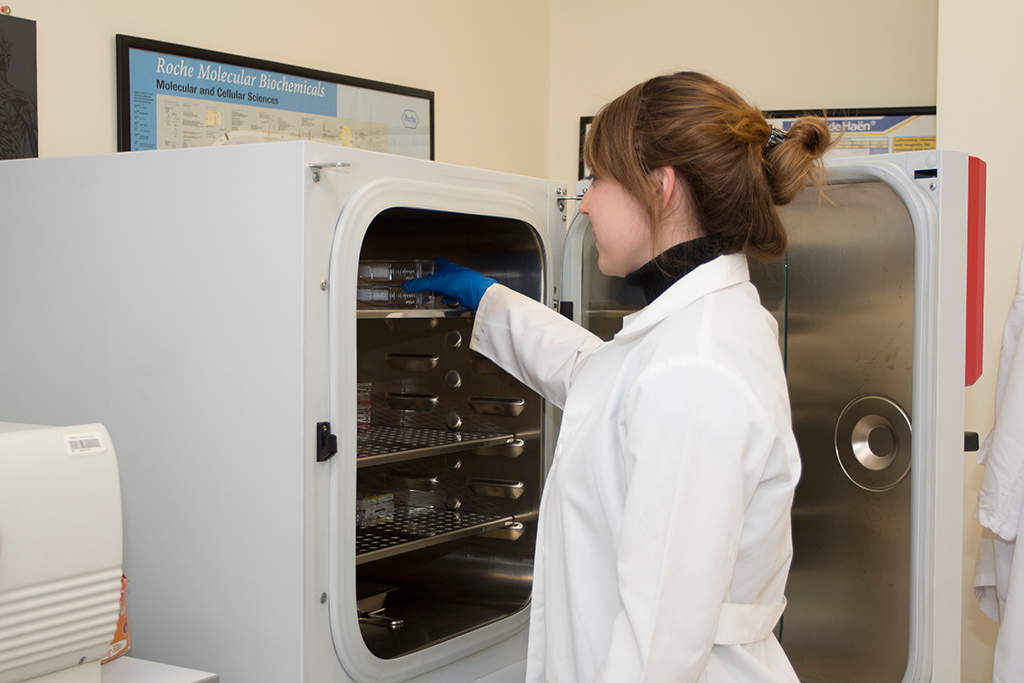
Signal Transduction and Biotechnology Lab is mainly established for apoptosis related signal transduction studies. The lab is equipped with a Class II biological safety cabinet (BSC), a sealed bench-top centrifuge (used only for mammalian cells), two incubators and a water bath for cell culture work. In addition to these; a refrigerated bench-top centrifuge, an ELISA reader, a vacuum dryer, SDS-PAGE and western transfer apparatus, a balance, a magnetic stirrer/heater, freezers and refrigerators, and a vortex are available for DNA, RNA or protein studies. A chemical fume hood is located in the laboratory for working with hazardous chemicals. Cell culture stocks are kept in liquid nitrogen tank that is located in the cold room. Drugs and isolated proteins are kept in a -80 ºC freezer near the laboratory. Drug application, protein and RNA isolations, and all cell culture routines are conducted in the BSC. Western blotting, cellular transfections, real-time PCR, flow cytometry and microarray analyses are among the routines of the Signal Transduction and Biotechnology laboratory.

